Medical Student Education
The University of Washington Family Medicine Medical Student Education Section develops and delivers innovative, high-quality training to students who will serve the evolving needs of the diverse individuals, families, and communities of the WWAMI region, with emphasis on rural and urban underserved and other vulnerable populations.
View Courses View ProgramsExplore MSE
- Clerkship Tracker
- Faculty and Staff Profiles
About US
Family Physicians provide comprehensive, cost-effective, and high quality health care for individuals and families. Unlike most medical specialties, which focus narrowly on specific conditions or parts of the body, Family Medicine takes a broad approach that integrates biological, clinical and behavioral science. Doctors specializing in Family Medicine care for all types of people:
- Children, adults, and elders;
- People with diverse socio-cultural and economic backgrounds;
- Expectant families including pregnancy, birth, and newborns; and
- Healthy individuals as well as those facing serious health challenges.
To Family Physicians, accessible, safe, affordable, evidence-based care that is respectful of patient preferences and culture is essential to optimal physical and mental health.
The educational path of Family Physicians includes four years of medical school with the achievement of an MD or DO degree, followed by at least three years of post-graduate training at a Family Medicine residency. Residency training culminates in board certification, where candidates must demonstrate competency in a broad range of skills. Ongoing certification requires extensive continuing medical education and quality improvement activities.
During Family Medicine residency training, residents are engaged in a wide variety of activities to prepare them for their broad scope of practice. The most important part of that training is working as part of a team in the Family Medicine clinic; residents care for a panel of patients throughout residency under the direct supervision and mentorship of faculty physicians. Outside of the clinic, residents hone their skills in several ways:
- Extensive work in hospitals, taking care of adult and pediatric patients as well as following laboring women and delivering babies;
- Working with experienced physicians in both general and specialty areas of medicine and surgery;
- Performing procedures ranging from laceration repairs to delivering babies, first through training in simulation labs and then with patients under the guidance of supervising physicians;
- Caring for communities and populations of patients, monitoring quality outcomes in their practices, and working with others in the health system; and
- Learning how to maintain and update skills in the rapidly changing field of medical information and technology.
We value:
- Health as a matter of social justice. All individuals, families and communities have a right to health and access to medical care.
- Family medicine as the foundation of health care for all, providing patient care that is patient-centered and evidence-based; and family medicine as a foundation for the development of all physicians.
- Excellent education that is innovative, relationship-centered and community-based, emphasizing population health, community engagement, service learning and continuous quality improvement.
- Inter-professional and inter-disciplinary collaboration that promotes teamwork, professionalism and respectful treatment of students, patients and colleagues.
- Diversity among our students, staff and faculty.
- Professional and personal development of students, staff and faculty.
This site provides information about our required and elective courses and programs.
Please let us know if we can provide you with additional information about the department’s medical student education offerings.
Best wishes,
Amanda Kost, MD, MEd
Associate Professor
Section Head, Medical Student Education
akost@uw.edu
Ivan O. Henson
Assistant Director
Medical Student Education Section
ivanodin@uw.edu
